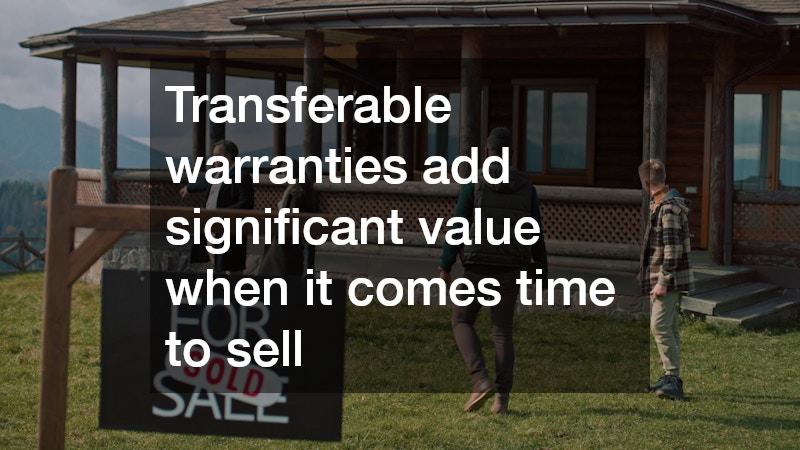-
Always review warranty coverage in detail, including structural, systems, and cosmetic protections, before signing with a builder.
-
Ask clear questions about limitations, exclusions, and homeowner maintenance responsibilities to avoid surprises later.
-
Understand the claim process—how to file, response times, and whether repairs are done by the builder or third parties.
-
Check whether the warranty is transferable, since this can add resale value and appeal to future buyers.
-
Compare custom homebuilders with warranties side by side, looking for comprehensive coverage and transparent terms.
-
Seek legal review or expert advice if any part of the warranty seems unclear or overly restrictive.
Building a custom home is a major milestone, and most homeowners want reassurance that their investment is protected for the long term. That’s where custom homebuilders with warranties provide an important safeguard. These warranties are designed to cover defects in materials, workmanship, and structural components, but the details vary significantly between builders. Some offer comprehensive protection that covers multiple aspects of the home for years, while others include limited coverage with numerous exclusions. Many homeowners mistakenly assume that all warranties are alike or that every potential issue will be covered automatically. In reality, warranties are legal agreements, and the protections you receive depend entirely on the specific terms you sign. Asking the right questions before committing ensures you understand your coverage, avoids unpleasant surprises, and helps you select a builder who stands confidently behind their work.
Understanding the Basics of Custom Home Builder Warranties
Custom homebuilders with warranties typically provide coverage for different areas of the home, divided into timeframes. These tiers of protection give homeowners confidence that if issues arise, they will be addressed by the builder within a defined period. However, the scope and duration of coverage differ widely.
Typical components of a custom home warranty include:
-
Workmanship coverage – Usually lasts one year and addresses cosmetic or surface-level issues, such as drywall cracks, uneven flooring, or paint imperfections.
-
Systems coverage – Often applies for two years and includes major systems like electrical wiring, plumbing, and HVAC. This ensures that if essential utilities fail due to builder error, homeowners aren’t left paying out of pocket.
-
Structural coverage – Generally extends up to 10 years and protects against significant structural defects such as foundation cracks, roof failures, or framing problems.
Understanding these basics helps homeowners distinguish between a builder who offers robust protection and one who relies on minimal legal obligations.
Key Questions About Warranty Coverage
When evaluating custom homebuilders with warranties, homeowners should focus first on what is actually covered. Builders often highlight structural or workmanship guarantees but may not clarify smaller details until asked directly.
Important questions to ask about coverage include:
-
What areas of the home are specifically covered? Make sure the warranty clearly defines whether roofing, siding, insulation, flooring, and cabinetry are included.
-
Are appliances covered? Some builders include coverage for kitchen and laundry appliances, while others leave these items under the manufacturer’s warranty only.
-
Does the warranty protect against water intrusion or roof leaks? These are common issues that can cause major damage if excluded.
-
What about landscaping and exterior features? Driveways, patios, fences, and sod are often excluded, but some builders provide limited coverage for these.
-
Are cosmetic defects included or excluded? Minor issues such as tile cracks, grout lines, or paint bubbling may be covered during the first year but are often disputed.
-
Does the warranty differentiate between major and minor defects? Some builders may repair a leaky faucet but not address a misaligned door unless it impacts functionality.
By clarifying what is included upfront, homeowners avoid disappointment later when problems arise that fall outside the warranty’s protections.
Questions About Warranty Limitations and Exclusions
Just as important as what’s covered is understanding what isn’t. Even the most reputable custom homebuilders with warranties include limitations to protect themselves from liability for issues beyond their control.
Homeowners should ask questions such as:
-
What exclusions apply to the warranty? Many agreements exclude natural disasters, normal wear and tear, and homeowner negligence.
-
Are there specific maintenance tasks required to keep coverage valid? For instance, failing to replace HVAC filters or clean gutters could void certain protections.
-
Does the warranty apply to damage caused by subcontractors? Some builders limit responsibility if a third-party contractor completed part of the work.
-
Are dollar limits placed on specific repairs? Certain warranties cap repair costs, leaving homeowners to pay the difference.
-
What happens if the builder goes out of business? Ask if coverage is backed by a third-party company that ensures protection even if the builder closes.
Understanding exclusions helps homeowners plan realistically. If landscaping or exterior hardscaping isn’t covered, for example, they’ll know to budget for maintenance or additional insurance.
Questions About the Claim Process
Even the strongest warranty is only useful if the claims process is straightforward and reliable. Homeowners should ensure they know exactly how to file a claim, what documentation is required, and how quickly issues will be addressed.
Points to clarify with custom homebuilders with warranties include:
-
How is a claim filed? Ask if claims must be submitted in writing, online, or through a specific portal.
-
What documentation is needed? Photos, receipts, or inspection reports may be required to process claims.
-
What is the standard response time? Some warranties guarantee inspections or repairs within 30 days, while others are vague.
-
Is there an emergency repair process? For urgent issues like burst pipes or electrical hazards, homeowners should confirm there’s a fast-track procedure.
-
Who completes the repairs? Determine whether the original builder, subcontractors, or third-party service providers handle warranty repairs.
-
Are there fees associated with claims? Some agreements require homeowners to pay service call charges, even for covered repairs.
A clear, efficient claims process is often what separates builders with excellent reputations from those who leave homeowners frustrated.
Warranty Transferability and Resale Value
For many families, a custom home isn’t necessarily their forever home. Transferable warranties add significant value when it comes time to sell. Buyers are more likely to trust a property backed by a strong warranty, and builders who offer this feature demonstrate confidence in their work.
Homeowners should ask:
-
Is the warranty transferable to new owners? Confirm whether it automatically transfers or requires a fee.
-
Are there restrictions on transfer? Some warranties only transfer once, while others allow multiple transfers within the coverage period.
-
Does a transferable warranty increase resale value? Homes with transferable warranties often stand out in competitive markets and reassure buyers about potential defects.
Custom homebuilders with warranties that transfer coverage are providing long-term value not just for the original owner but for the property itself.

Comparing Warranties Between Builders
Not all warranties are created equal, and comparing builders side by side is an important part of due diligence. A builder offering limited one-year coverage across the board may not stand behind their work the same way a builder offering 10-year structural protection does.
When comparing, homeowners should:
-
Review the length of coverage for workmanship, systems, and structural components.
-
Identify vague or unclear terms that could cause disputes.
-
Check if warranties are backed by third-party providers, offering security even if the builder ceases operations.
-
Compare how claims are handled—quick turnaround vs. lengthy processes.
-
Ask for references from past clients who have successfully used the warranty.
These comparisons reveal which custom homebuilders with warranties genuinely prioritize customer satisfaction.
Additional Questions to Ask Before Signing
Beyond coverage, exclusions, and claims, there are other critical questions that can clarify the true value of a warranty.
Examples include:
-
Are third-party warranty providers involved? This adds stability and impartiality.
-
How are disputes resolved? Some agreements mandate mediation or arbitration rather than court proceedings.
-
Does the builder offer optional extended warranties? Extended coverage can be purchased for specialty items like pools or solar panels.
-
Can warranty terms be negotiated before signing? Builders may be willing to modify certain terms for serious buyers.
-
What happens if repairs are delayed? Clarify whether compensation or temporary accommodations are provided.
Asking these questions demonstrates diligence and helps homeowners secure a more favorable agreement.
Tips for Reviewing and Signing Warranty Agreements
Finally, homeowners should treat the warranty review process as seriously as the home purchase itself. Many disappointments happen because buyers fail to read the fine print or rely on verbal assurances.
Best practices when reviewing warranty terms:
-
Read the entire document carefully—don’t skip sections that seem overly technical.
-
Request clarification in writing if any part of the warranty is unclear.
-
Ask the builder for examples of common claims and how they were resolved.
-
Keep detailed records of all communication with the builder regarding warranty discussions.
-
Consult an attorney or real estate professional for a second opinion if needed.
A warranty is more than just paperwork—it’s a builder’s promise to stand behind their work. While the appeal of a new custom home can make it tempting to gloss over the details, asking the right questions about coverage, exclusions, claims, and transferability can save homeowners time, stress, and money in the years ahead. Custom homebuilders with warranties that are clear, comprehensive, and backed by a solid claims process demonstrate a level of accountability that benefits homeowners long after the keys are handed over. By being proactive before signing, buyers can secure peace of mind and ensure their dream home remains a strong, valuable investment.


